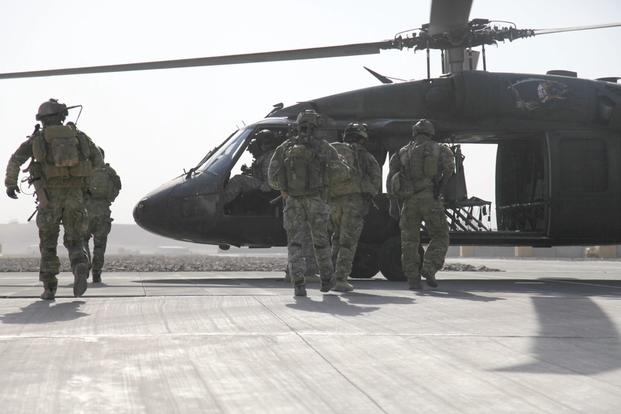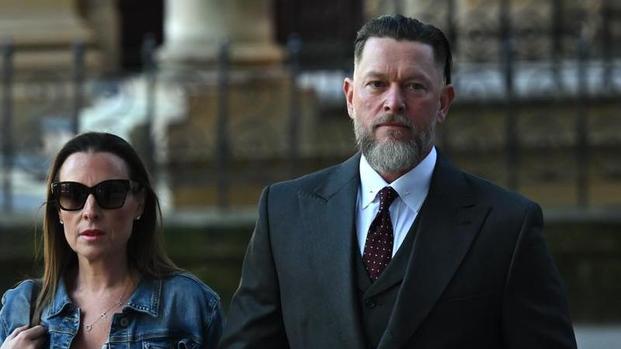Australia is grappling with trying to investigate veterans accused of misconduct during the long war in Afghanistan, while the price tag for litigation keeps rising.
The Cost
The Australian government has designated $318 million over the past 10 years for investigations. Per soldier, that equals $17 million for each of the 19 accused veterans. Peter Brereton, an Australian judge, pushed for prosecution in 2020 and the cases are still slogging their way through the legal system.
And amidst all the legal wrangling and taxpayer money spent on litigation, only one veteran has been charged with a war crime by the Office of Special Investigator. Oliver Schulz, who served for the Special Air Service, is being tried for killing a detained prisoner in a field in 2012. His trial is planned for 2027.
For the other 18 veterans under legal scrutiny, the waiting game continues. Any day, authorities could arrive at their homes, leading them away in handcuffs. Now middle-aged, most of the crimes they’re being accused of happened more than 20 years ago. They’ve replaced their hard-charging combat soldiers’ lives for quaint surroundings, raising families in Australia and other countries.
There is also some controversy swirling around the special prosecutor, former judge Mark Weinberg.
Staff writer Aaron Patrick from The Nightly claims, “Unlike senior public servants, he does not take questions from the parliamentary committee that oversees his agency. He does not give interviews. His office refuses to provide any public indication of when or how many soldiers it intends to seek charges against.”
Patrick’s latest book, “The Last Battle,” details the Battle of Shah Wali Kot in 2010.
Aussies Split on Charging Veterans
Meanwhile, Australians remain split on whether veterans should be charged and convicted of misconduct in combat.
There are many who believe justice should be served to set a precedent showing some protection for civilians and prisoners of war. But there are civilians who see it another way. That these veterans are being unjustly hounded for fighting in a “dirty war.” After all, Taliban soldiers didn’t identify themselves by wearing uniforms and adhered to no rules in warfare. Patrick mentioned that Taliban members executed public servants trying to deliver goods to Afghan residents because they were concerned the servants would persuade villagers to support the country’s elected government. They even hung a seven-year-old boy for allegedly passing along information about their movements.
During the war in Afghanistan, Western coalition forces were tasked with hunting down Taliban commanders and either capturing them or killing them.
Special Air Service Regiment (SAS)
Australia’s Special Air Service Regiment (SAS) was in the thick of this operation. Divided into small squads, the regiment was given about six names of Taliban leaders to pursue. Patrick said the regiment was very good at their job, but it came with a price. Forty-one Australian soldiers were killed in the war, with about half coming from the SAS and 2nd Commando Regiment.
Patrick argues, however, that the Taliban were more willing to kill or be killed than Western coalition forces. It’s estimated that about 85,000 Taliban soldiers died during the 20-year conflict.

Afghan Syndrome Worse Than Vietnam?
Stories of soldier misconduct go back to 2009, according to Patrick. Many Australian veterans who served in Afghanistan are unwilling to talk about the war, fearing backlash. An example is the Battle of Shah Wali Kot, which Patrick believes is Australia’s greatest modern military victory. However, due to the Afghan syndrome, veterans would rather not discuss even their most courageous battles.
Dean Parkinson, a member of the SAS who survived an enemy sneak attack in Afghanistan, was asked, “Did you murder anyone over there, Dad?” by his son after returning from war.
Patrick believes the Afghan syndrome could have more adverse effects than what Vietnam veterans faced in the 1970s.
“Although they returned from a failed, unpopular war, Vietnam vets were not accused of individual crimes,” Patrick writes. “Eventually, they were celebrated in movies, books, and monuments.”
Looking Ahead
While he acknowledges that Australian forces did have missteps in Afghanistan, Patrick doesn’t think they made it an unjust war. After Western forces pulled out of Afghanistan in 2021, the Taliban quickly swooped in to take back much of the power and control it had before 9/11. Freedom of the press has eroded. Afghan women no longer have the right to attend school past eighth grade. Opponents of the Taliban are arrested and beaten, and Patrick said public executions have returned.
“The time may have come for a national discussion about the prosecution of war veterans,” Patrick writes. “There are passionate arguments on both sides. These men fought in our names. As a society, we are collectively responsible for our actions.”















